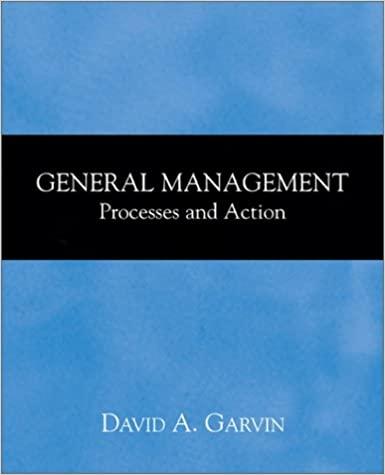Answered step by step
Verified Expert Solution
Question
1 Approved Answer
Non-medical professionals working at hospitals should be taught basic medical skills and utilized as surge-support in emergency units during times of crises. These employees may
Non-medical professionals working at hospitals should be taught basic medical skills and utilized as surge-support in emergency units during times of crises. These employees may be provided formal training and report to a doctor when completing these duties. This would enable hospitals to respond more quickly and effectively in times of greatest need, when other tasks may be put aside and resumed once the crisis has passed. Which of the following statements, if true, provides the WEAKEST support for the argument that non-medical professionals should be utilized during crises? radio_button_unchecked Surge-support in policing has been effective in the U.S., where citizens are trained in basic functions such as neighborhood watch. radio_button_unchecked Refresher training provided at regular intervals has been shown to keep basic medical skills sharp, even if they are not used regularly. radio_button_unchecked Basic medical techniques are easy to learn and perform, resulting in few errors in trial studies. radio_button_unchecked Detailed contingency plans can avoid confusion when a large number of employees are moved to their surge-support roles. radio_button_checked Insurance liability costs associated with a problem for a patient under the care of a non-medical professional must be accounted for
Step by Step Solution
There are 3 Steps involved in it
Step: 1
The statement that provides the weakest support for the argument is Insurance liability costs associ...
Get Instant Access to Expert-Tailored Solutions
See step-by-step solutions with expert insights and AI powered tools for academic success
Step: 2

Step: 3

Ace Your Homework with AI
Get the answers you need in no time with our AI-driven, step-by-step assistance
Get Started


